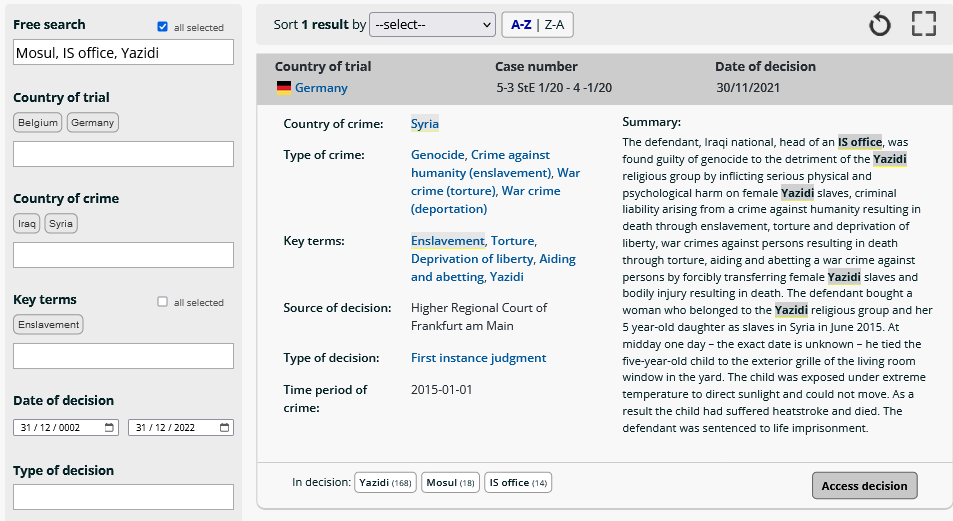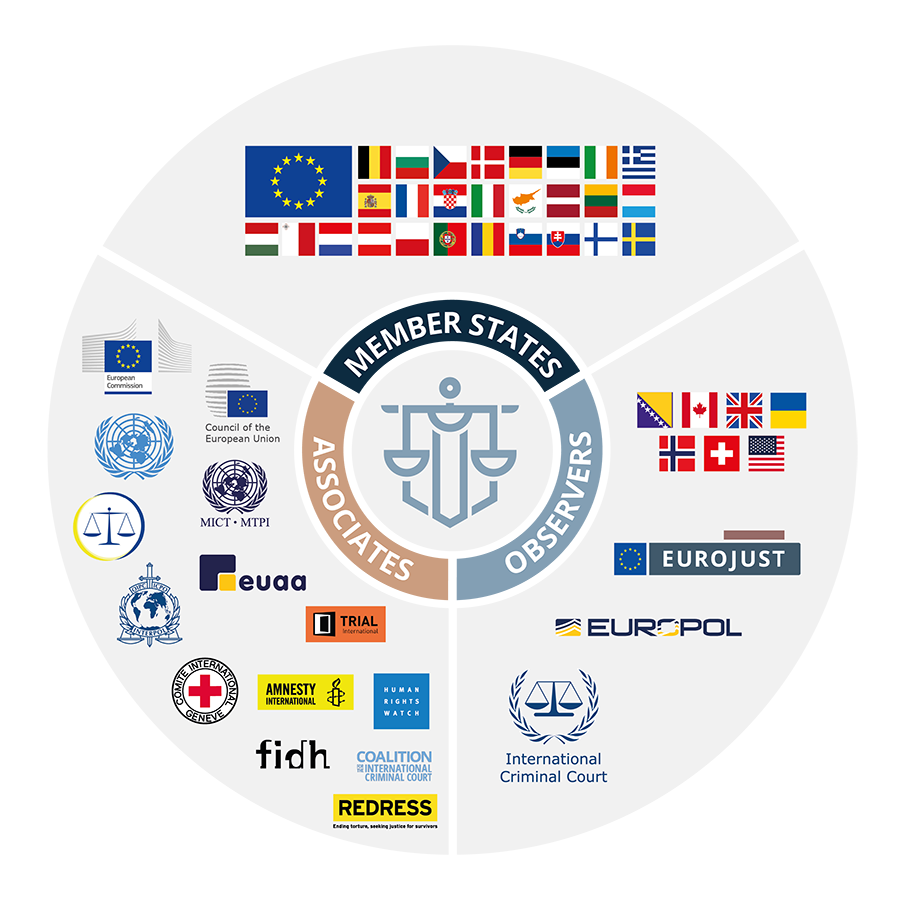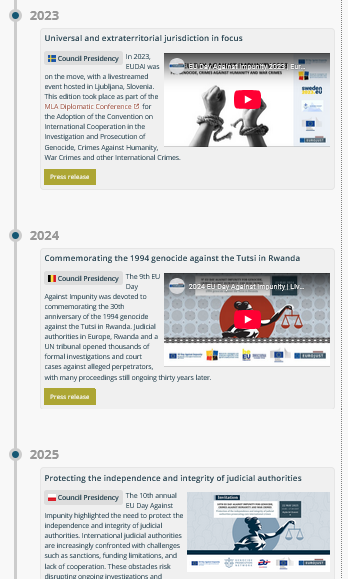
The European Network for investigation and prosecution of genocide, crimes against humanity and war crimes (‘Genocide Prosecution Network’) was established in 2002 and reinforced in 2003 by the Council of the European Union to enable close cooperation between the national authorities when investigating and prosecuting the crime of genocide, crimes against humanity and war crimes, known collectively as core international crimes. The Network’s mandate is to ensure perpetrators do not attain impunity within the Member States.
EU States are represented in the Genocide Prosecution Network through national Contact Points, comprising specialised and dedicated prosecutors, investigators and officers for mutual legal assistance. The Contact Points provide operational support to their colleagues at national and European Union level in the form of judicial cooperation. The Network provides a platform for practitioners to exchange operational information and share experience and best practice through biannual meetings. The Network is a unique forum, with Member State national authorities joining Observer States and associate organisations from the European Union, United Nations and beyond, as well as civil society, in a common goal: the fight against impunity.

Supporting judicial authorities in the fight against core international crimes
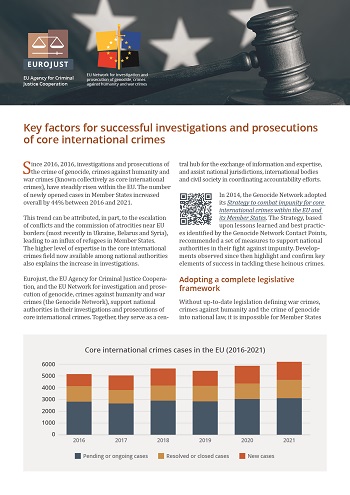
Key factors for successful investigations and prosecutions of core international crimes
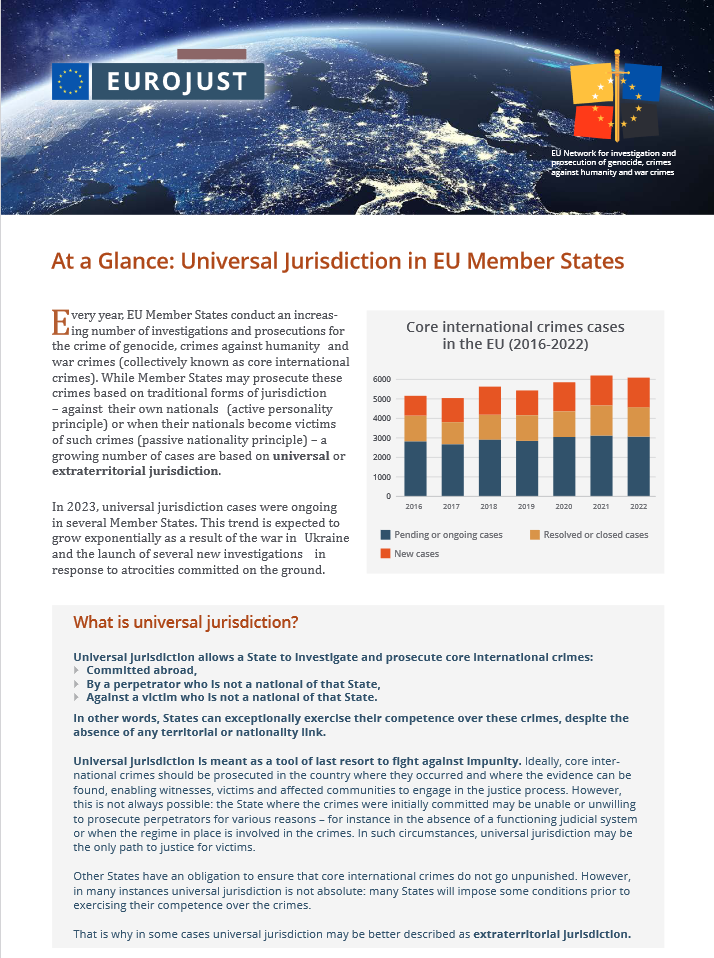
At a Glance: Universal Jurisdiction in EU Member States
National jurisprudence database on core international crimes
In November 2024, the Genocide Prosecution Network launched a searchable database of selected judicial decisions on core international crimes, translated into English.
The database gathers key decisions from EU Member States focused on war crimes, crimes against humanity, genocide, as well as other concurrent crimes such as terrorism related offences. It builds on previous publications of national jurisprudence on core international crime cases.

